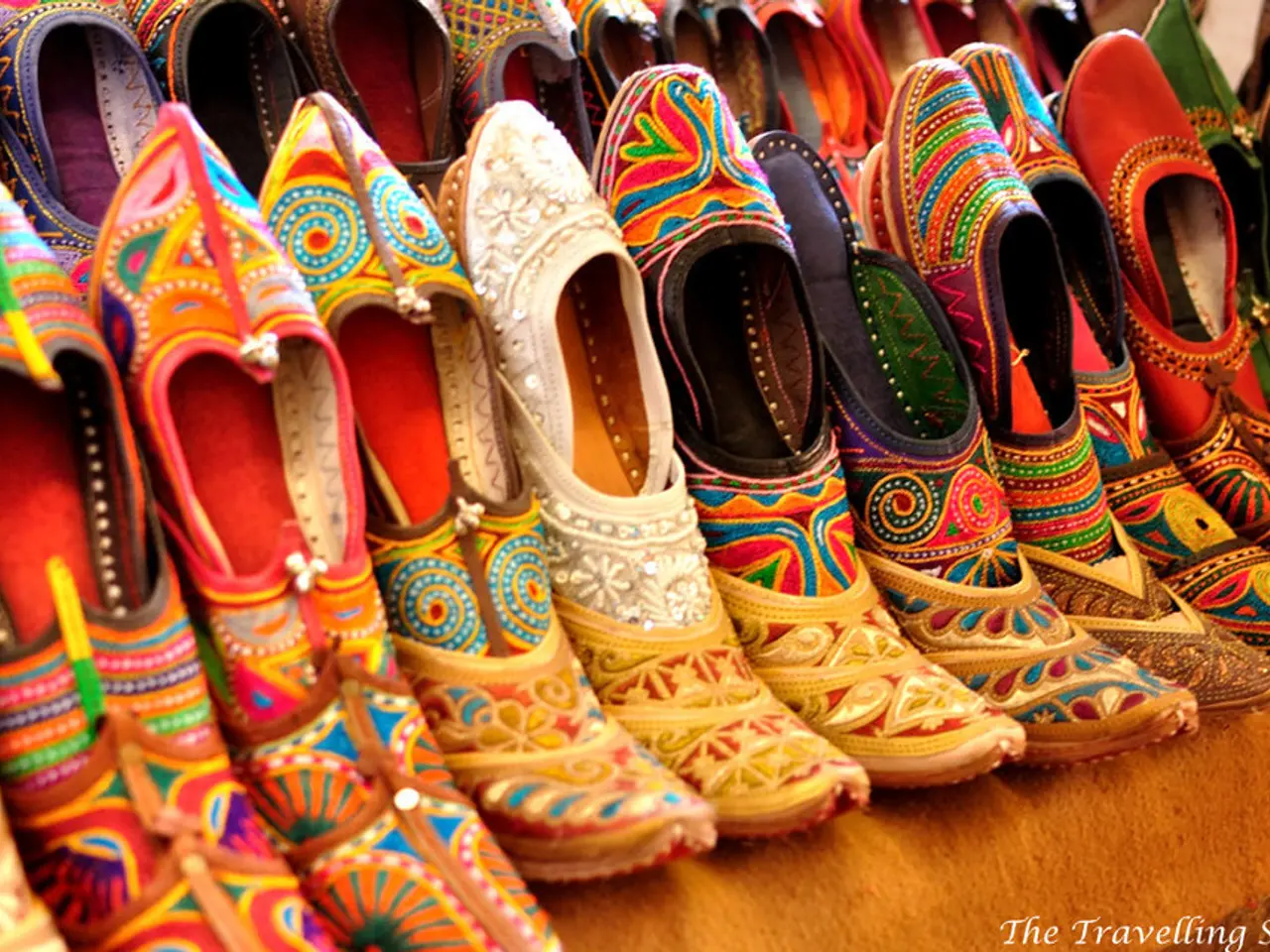5 strategies for exfoliating callused and flaky foot skin
In the quest for smooth and healthy feet, managing dry, cracked, or scaly skin is essential. Here are some effective home remedies for treating and preventing such issues, along with suggestions for addressing underlying medical conditions.
Regular moisturizing is key to keeping feet hydrated. Apply a rich, fragrance-free moisturizer immediately after bathing to lock in moisture and soothe dry skin. Natural emollients like vegetable oil, Vaseline, or honey can also be beneficial.
Gentle exfoliation once or twice a week can help remove dead skin and improve skin texture. A foot brush or pumice stone can be used, while homemade scrubs, such as oatmeal mixed with rose water or a lemon juice and sugar mixture, can smooth rough skin. However, caution is advised with acidic ingredients on cracked or open skin.
Soaking feet in warm water before exfoliating can soften the skin. Adding Epsom salt to the soak can help hydrate the skin and reduce inflammation, while vinegar may disinfect and reduce odor.
Protective measures, such as avoiding prolonged exposure to hot water and wearing socks or closed shoes, can protect the feet from environmental dryness and mechanical irritation.
Other home remedies include baking soda scrubs, banana and honey masks, and rice flour with vinegar scrubs, all aimed at softening and healing cracked heels.
Several medical conditions can cause dry, cracked, or scaly skin on the feet. These include thyroid disorders, psoriasis (palmoplantar type), juvenile plantar dermatosis, autoimmune disorders, obesity and pregnancy, aging, athlete's foot (tinea pedis), and certain medications.
Effective management combines regular moisturizing, gentle exfoliation, protective footwear, and foot soaks. Addressing any underlying medical conditions is crucial for persistent or severe cases. Practicing proper foot hygiene, avoiding potential irritants, and using warm water can help prevent dry skin on the feet.
Vinegar has antimicrobial properties that may help disinfect the feet and eliminate foot odor. Wearing cotton socks or other fabric wrap with a moisturizer can help hydrate and repair dry skin on the feet. Adding vinegar to a foot soak may help treat mild forms of athlete's foot.
It is best to avoid lotions, creams, and moisturizers that contain alcohol, added fragrances, and artificial colors. Moisturizing gel-lined socks can provide extra hydration to the feet.
Humectants such as urea, aloe, and hyaluronic acid, and emollients such as petrolatum, lanolin, and coconut oil are beneficial in moisturizers.
Simple foot soaks, moisturizers, regular exfoliation, and treatments like pumice stones or foot files can help reduce dry skin on the feet, remove dead skin and calluses, and prevent them from returning. Exfoliation can be done using exfoliating scrubs or chemical exfoliators, which contain abrasive materials or ingredients that dissolve dead cells on the skin's surface.
Soaking the feet in warm water helps soothe and loosen dry skin while improving blood circulation to the feet, which can help prevent dry skin in the future.
In conclusion, with the right combination of home remedies and care, dry, cracked, or scaly skin on the feet can be effectively managed, leading to healthier, smoother feet.
- Regularly apply a rich, fragrance-free moisturizer after bathing for hydrated and soothed skin.
- Gentle exfoliation using a foot brush, pumice stone, or homemade scrubs can improve skin texture and remove dead skin.
- Soaking feet in warm water softens the skin, with added Epsom salt for hydration and reduced inflammation, or vinegar for disinfection and odor reduction.
- Protective measures like avoiding hot water and wearing socks can prevent environmental dryness and mechanical irritation.
- Conditions such as psoriasis (palmoplantar type), athlete's foot, and certain medications might cause dry skin on the feet, making management of these underlying issues crucial.
- Proper foot hygiene, warm water usage, and avoiding potential irritants can help prevent dry skin.
- Vinegar, when added to a foot soak or used with cotton socks, may help disinfect, eliminate foot odor, and treat mild athlete's foot.
- Moisturizers containing humectants like urea, aloe, and hyaluronic acid, as well as emollients like petrolatum, lanolin, and coconut oil, provide optimal hydration.




